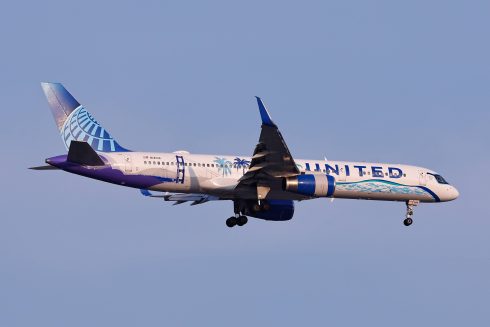SKIPLAGGING, also known as “hidden-city ticketing”, is a controversial practice for securing lower airfares that involves getting off prematurely during a multi-leg flight.
But how does it work?
Pioneered by Skiplagged.com, the practice has existed for over a decade, but has surged in popularity in recent years due to spiking airfare costs.
Utilising the website’s search engine, travellers book tickets for multi-leg flights with the intention of exiting the plane during the layover, never boarding for the final leg of the journey.
This can amount to savings of as much as 80%, according to the company’s website, as flights between well-connected airports can be cheaper than those to cities in between, even if the distance is farther.
For example, a one-way flight from London Heathrow to the Madrid Barajas airport on Friday, February 2 booked through Iberia would cost £233.
The same flight, booked through Skiplagged.com, would cost about £196.
This is because the Skiplagged booking charges for the price of the longer flight route from London to Dusseldorf, Germany, which is cheaper than the same flight from London to Madrid.
The passenger would simply get off the plane when it lands in Madrid and skip the connection to Dusseldorf.
For obvious reasons, skiplagging only works if travellers do not check luggage, as any checked bags would end up at the final destination without their owner.
Skiplagged also recommends that customers travel with only a small backpack.
Otherwise, they might run the risk of being forced to check their carry-on at the gate in the case of a full flight, which would ruin the skiplag.

A travel industry rebel
Skiplagged.com was founded in 2013 by then-20-year-old Aktarer Zaman.
The company promotes itself as “improvers and frequent flyers,” who believe “customers should have more power over how they spend their money,” according to the website.
Despite the noble mission, the practice is controversial, and Zaman and the company have run into some legal trouble over the years.
In August 2023, American Airlines tried to sue Skiplagged in US federal court, alleging that the company “tricks passengers into thinking they’re getting access to some kind of secret loophole,” while in some cases actually charging them “more money than if they booked with the airline.”
And back in 2014, United Airlines sued Skiplagged and accused the CEO of “intentionally and maliciously interfering with its operations,” although the case was eventually thrown out.
These lawsuits are apparently all marketing fodder for Skiplagged, as it seems to brag about them on its info page.
“Some tried to stop us, but we persevered,” reads a blurb in the website’s “Why are we doing this,” which links to a CNN story about the United lawsuit.
Is it legal?
Yes, although skiplagging doesn’t come without its risks.
For one, a number of major airlines in the US — such as American and United — have banned the practice.
If the airline finds out a customer is skiplagging, they could run the risk of long-term flight bans or their ticket being invalidated.
And in extreme cases, customers can be sued.
In July 2023, a 17-year-old American boy attempted to use his $150 skiplagged ticket to fly from Gainesville, Florida, to Charlotte, North Carolina, via a flight path with a final destination in New York City.
After seeing the boy’s North Carolina driver’s licence, gate agents questioned him, before cancelling his ticket.
In the end he was banned from the airline for three years.
And in 2018, German airline Lufthansa sued a man for €2,112 for not boarding the final leg of his flight from Oslo, Norway, to Seattle, Washington.
The man had a layover in Frankfurt, where he got off and caught a separate flight to Berlin.
The case was eventually thrown out by a Berlin court, according to a CNN report, though most airlines consider skiplagging to be a serious offence.
Even Skiplagged itself acknowledges the risks.
“You might upset the airline, so don’t do this often,” the website’s FAQ page reads.
For one, it is a major financial loss for them, as airlines expect sold tickets to be filled.
Had they known the passenger never intended to board the flight, they might have sold the ticket for a higher price.
“They are selling that seat with a 95% probability that you’ll show up,” said Tim Huh, a professor at the University of British Columbia who’s studied the economic implications of skiplagging, to NPR.
“That’s a big loss in the system.”
The practice can also cause confusion and delay flights, as gate agents typically call for missing customers via the airport intercom if they fail to show up for boarding.
READ MORE


